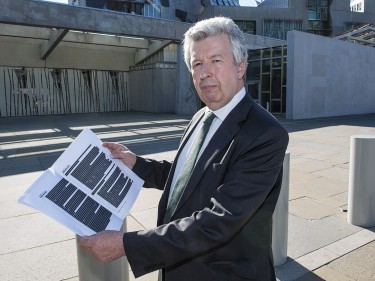A watchdog is calling for improvements to be made at a north-east super jail so inmates do not miss mental health appointments.
Inspectors from the Mental Welfare Commission for Scotland visited HMP Grampian in the summer.
At the time of the inspection there was only one registered mental health nurse working at the Peterhead facility.
This was highlighted in a recent report by HMIPS chief inspector of prisons Wendy Sinclair-Gieben.
The document said the shortage of nurses was “of particular concern” and suggested both Aberdeenshire Health and Care Partnership and NHS Grampian need to consider alternative ways of providing care at the £140million prison.
>> Keep up to date with the latest news with The P&J newsletter
A new report by the Mental Welfare Commission for Scotland is urging the Scottish Prison Service (SPS) to recruit more guards so prisoners can see a doctor.
Inmates have to be escorted to health centre appointments and the inspectors discovered a number had to be cancelled because there was no-one available to take them.
The report by the commission’s executive director of nursing Alison Thomson said this caused “specific problems” because psychiatrists would only be in Peterhead for a single day.
Mrs Thomson said: “This can mean that planned ongoing work with individual prisoners is not taking place.
“It can cause specific problems if a visiting psychiatrist is not able to see a prisoner for a planned appointment, because psychiatrists are only in the prison one day a week.
“We know that the prison governors are aware of this issue and that it is hoped that new staff will be recruited to fill vacant prison officer posts.”
The Mental Welfare Commission for Scotland is also calling for a learning disability screening process to be introduced by health bosses as part of the health centre admissions process.
North-east Labour MSP Lewis Macdonald said the report shows how crucial mental health support is for prisoners. He said: “Mental illness affects large numbers of those who are sent to prison, so action to improve mental health is clearly a priority.
“This report highlights the importance of prisoners getting access to the treatment they need, and also the importance of identifying learning disability when prisoners are first admitted.
“Knowing who is affected by what can make all the difference to how they are managed in jail.”
A spokesman for SPS said they would “do all we can” to make sure inmates were able to attend health appointments.
Mark Simpson from Aberdeenshire Health and Social Partnership, which runs mental health services at the prison, said: “I am very proud of the work that healthcare staff do to support prisoners experiencing mental health issues.
“Mental health will continue to be a priority area of work for us within HMP Grampian and we are dedicated to providing high quality, sustainable services.”

